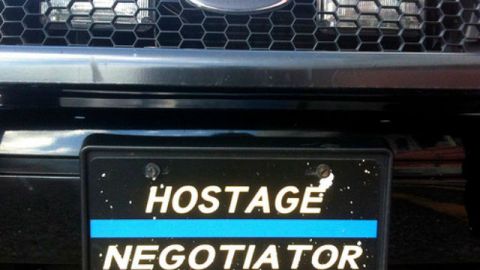Negotiation Tips from a Hostage Negotiator

Whether negotiating for a raise to save for a dream home, or a contract to finally sell that “passion project,” a negotiation can sometimes feel like life or death. Law enforcement and hostage negotiation expert Scott Wagner, retired New York Police Department homicide detective, advises that negotiating means careful listening.
Out of about 4,000 NYPD detectives, up until his retirement shortly after 9/11, Wagner was on an elite force of 95 hostage negotiators, trained as emergency psychological technicians. Working homicide in lower Manhattan for over 23 years, Wagner was always on call, ready to rush at a moment’s notice to the scene of a police stand-off. “You could be in the middle of a homicide investigation,” he said, “and you just had to get in your car and go.”
Ninety-five-percent of the time, a task force of heavily guarded and armed officers would be on the scene first, he said, and already had the situation under control. But for the life-threatening five-percent, when a hostage situation could last for a few days, Wagner would often have to build and maintain rapport with a deranged human being.
To get through 23 years on the force and never lose a hostage, Wagner relied on his sensitive side. “Listen very carefully to what people say. Take notes,” he said, offering his advice to would-be stealth negotiators.
He stresses that tense negotiation requires a listening coach—a third party whose job it is to objectively listen and take notes for you. “I live by the credo that there are three sides to every story,” he added. “An impartial third person listening in on the conversation [is the third side].” He warns that engaging in the conversation risks overlooking important details.
Following the renowned protocol developed by NYPD’s Richard Bolz and Robert Louden in the 1970s, his hostage negotiations always included a “coach” who would listen through headphones to Wagner’s conversation with the hostage-taker and write down details. If, for instance, the hostage-taker repeated the word ‘mom’ two times—something Wagner missed—the coach would write a note up on the white board, flagging this as opportunity to steer the conversation toward resolution.
Who makes ideal “listening coaches,” according to Wagner? Women. “I always like to have a woman as a coach,” he said. “Women hear things and have a way of looking at things differently than men. I value a woman’s intuition. Even if she wasn’t a negotiator, I would get a female cop and put a pair of headphones on her to have her listen in.”
To emphasize this point, Wagner mentioned how his first partner on the force was a female, which brought him flack from other male officers who questioned how he could feel safe in the field. “I’d say, yeah, I feel safe out there. I’m better off, [because] I have her opinion.”
Along with careful listening, Wagner advises abiding by the motto of the hostage unit of the NYPD: Talk to me. “As long as you have them talking,” he said, “they’re not killing anybody.” To stretch and translate this into a business mores, let the other side talk so you can get to the heart of what they care about and then focus on shared interests.
“That’s what detectives do. We talk to people,” he said. “I have to convince you that I’m your world, I’m the only one who can save you. I’m the only one who can get you out of the situation that you’re in.“
To strike this balance of cautious intimacy, Wagner shared, “You go in soft but you go in firm. You don’t get too personal right away. You never say ‘I’m Scott.’ I say, ‘I’m Detective Wagner.’ If things are going well, I say, ‘why don’t you call me Scott.’ You have to know when to relinquish some of your authority and when to maintain.”
As a result of his career on the force, Wagner jokes that, while watching the news together, his wife is sometimes shocked that he can empathize with criminals. It comes with decades of earning their trust, and getting inside their heads. “You’ve got to learn to read people very quickly. The inflections in their voice,” he said, which leads to an ability to “understand why things happen without condoning them. You can’t investigate it or get in someone’s head unless you understand what motivates them to do what they do. You have to understand what makes them tick and what do they really want.”
Sometimes, engaging with someone, letting them be heard isn’t enough, unfortunately. “A lot of times they take their own life and it hurts. When you’ve been on the phone with someone for 15 hours and they take their own life, a part of you goes with them. You do develop closeness, a rapport,” he said.
Despite the outcome–tragic or peaceful–every NYPD hostage negotiation is filmed and goes through an extensive critique. “We learn from every job we do,” Wagner said, but was quick to add, “No two situations are alike. You have to be very open minded.”





